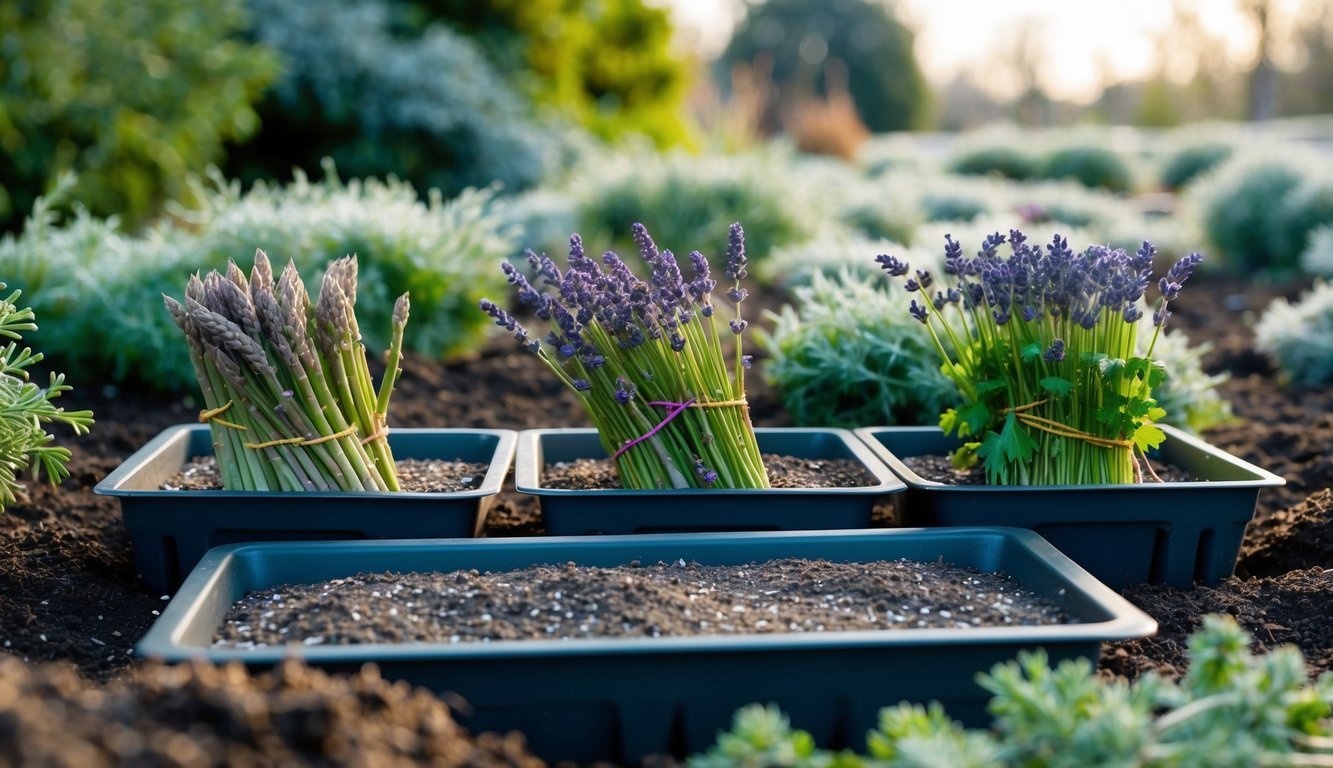
As December rolls in, it’s the perfect time for gardeners to think about planting seeds that take a little longer to germinate.
These seeds can take several weeks to sprout, making December an excellent month for sowing.
This advance planting means that by the time the main growing season kicks in, you’ll have strong transplants ready to go.
Experienced farmer Briana Yablonski shares her top picks for vegetables, flowers, and herbs that thrive when planted in December.
Understanding Germination
Germination isn’t just about throwing seeds in the soil; it’s a delicate dance of moisture and temperature.
Each plant has its unique timeline; some seeds pop up within days, while others can take a month or more.
Knowing how long different seeds typically take to germinate can help you time your sowing perfectly.
Fast-germinating varieties can be sown ahead of the planting season, while those that take longer will require a bit more foresight from the gardener.
Here’s a handy list of plant varieties that generally need at least a few weeks to sprout when conditions are right.
Keep in mind that environmental factors like temperature and moisture can affect germination times significantly.
Thus, starting these seeds in December ensures they have enough time to develop before you need to transplant them outdoors.
Factors Affecting Germination Times
While all the seeds on this list are known for their slower germination rates, even within a single variety, the sprouting time can differ due to various environmental influences.
Factors such as soil temperature and moisture levels play a critical role in how quickly seeds emerge from their slumber.
To maximize success, sow seeds in well-moistened soil at temperatures that suit the particular species; some prefer a warm 90°F (32°C) while others thrive around 70°F (21°C).
Interestingly, some seeds even require a chill before they’re ready to grow.
Seed packets usually provide guidance on ideal soil temperatures and necessary pre-treatment, but you can always look online for additional insights.
Light and planting depth are also essential components of successful germination.
While some seeds crave light to initiate growth, others prefer to be nestled in darkness.
Improperly burying the seeds or leaving them too exposed can impede their development.
Another key point is seed viability.
Seeds that are old or improperly stored may struggle to germinate effectively.
Always check the seed packets for purchase dates to ensure freshness.
Top Picks for December Planting
- Asparagus: Sprouts generally need about three weeks for ideal conditions.
- Lavender: Germination can vary significantly, spanning two to twelve weeks.
- Parsley: Expect to wait over a month for these to emerge.
- Celery: Requires light for germination and several weeks to sprout.
- Verbena: Germinates in two to four weeks.
- Artichoke: Slow-growing but thrives with warm, moist conditions.
- Rosemary: Should germinate in about two to four weeks under the right settings.
- Radicchio: Early sowing can yield tender, tasty leaves.
- Sea Holly: Typically germinates in a week or two but grows slowly afterward.
- Foxglove: Needs light to sprout, usually taking two to three weeks.
- Delphinium: Prefers a soil temperature around 65-70°F (18-21°C) for optimal growth.
- Larkspur: Germinates best in cool, dark conditions.
- Snapdragon: Expect germination in one to three weeks.
- Lupine: Soaking seeds beforehand can boost germination rates.
- Lisianthus: Patience is key, as this variety tends to grow slowly.
- Columbine: Requires about three to five weeks for germination.
- Echinacea: The germination period varies by species.
By getting a head start and planting these seeds in December, gardeners can set themselves up for a vibrant and productive gardening season when spring arrives.
Happy planting!
Source: Epicgardening

